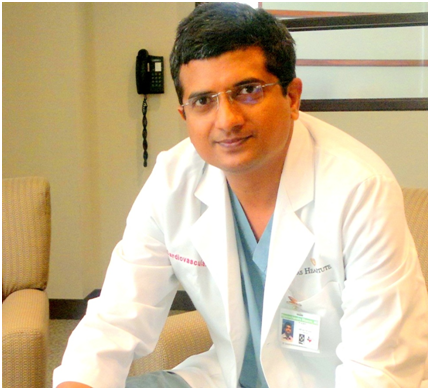Everything You Need To Know About Aortic Valve Replacement Surgery

By Dr Bipeenchandra Bhamre, Cardio-Thoracic Surgeon, Sir H N Reliance Foundation Hospital and Research Centre, Mumbai
Did you know? Aortic valve replacement surgery is a type of open-heart surgery to help tackle problems related to the heart’s aortic valve. During this surgery, one’s damaged valve is replaced with a new valve.
The aortic helps control the blood flow out from one’s heart to supply oxygenated blood the rest of the body. Thus, it is the responsibility of the valves to maintain one-way blood flow via the heart. Are you aware? 4 valves are present in the heart including the mitral, tricuspid, aortic, and pulmonic valves. Moreover, the aortic valve is situated between one’s left ventricle (heart pumping chamber) and the aorta (the largest artery in the body).
Several reasons for affecting aortic valve viz Rheumatic heart disease, degenerative due to age , bicuspid valve, bacterial endocarditis infection of the valve etc.
Problems that occur with aortic valve
· One will have to replace the aortic valve mainly for 2 reasons. The first is that the valve may get narrowed (aortic stenosis). Here the opening of one’s valve is smaller and that tends to hamper the blood flow out of the heart.
· The second reason can be due to a leaky valve that is aortic regurgitation. In this situation, one’s valve allows blood to flow back through the heart. You will be shocked to know that these problems can worsen one’s condition leading to heart failure if you fail to deal with it one time.
When to opt for aortic valve replacement?
Those with aortic valve disease will exhibit symptoms such as fainting, breathing problems, chest pain, and dizziness. You will undergo evaluation by echocardiography to determine the severity of the valve disease. If the valve stenosis shows severe narrowing or valve regurgitation shows severe aortic regurgitation your doctor will recommend to get the valve replaced.
Replacing the valve will be one of the options if one wishes to minimize the risk to life.
Preparation for the procedure: You must clear all the doubts regarding the procedure with the doctor. However, if you are scheduled to undergo this procedure then you will be examined by the doctor. The doctor will take your history into consideration, will check for allergies or ailments, and the medication you are taking. You will have to give up on smoking and alcohol before undergoing the procedure.
Normally you will be undergoing few more tests to understand the condition of your other organs prior heart surgery. Once all tests done we admit patient one day prior to surgery.
Know about Aortic Valve Replacement Surgery
The valve replacement will be done under general anesthesia. Takes about 4 hours time. The incision will be made in the chest in order to access your heart. The cut can also be smaller in minimal access surgeries through right side of chest. A heart-lung bypass machine is used in order to carry the job of the heart and lung. Heart is stopped and the damaged or the faulty valve is removed and replaced with the new one.
There are two types of heart valve available, one is mechanical valve (metalic valve) second is tissue valve (bovine pericardium) if you are younger than 65 years metalic valve is the choice and for older patient more than 65 years tissue valve is recommended. Your doctor will discuss the type of valve that is suitable for you. You can opt for the suitable valve depending on your own preferences. We see some young patients opt for tissue valve. Tissue valve advantage is you don’t have to take any medications disadvantage is it has lifespan of 10 to 12 years. Mechanical valve lasts for your life but you have to take blood thinner medication to keep it working.
The recovery process: Your hospital stay will be about a week. 3 days in ICU and 4 days in room. For one month after valve replacement you should be confined to your home. You will have to take it easy and just rest for 6 weeks. Most of the people resume normal life after 6 to 8 weeks. Your recovery will depend on the factors such as age and your overall health. Report any side-effects like constipation, swelling or redness around the wound, poor appetite, and pain on an immediate basis while recovering from your heart valve surgery.
With modern technology available the risks of replacement of valve is minimal. If your doctor has recommended valve replacement surgery then it can be done in very safe way with return to normal life activities in 6 to 8 weeks time.
